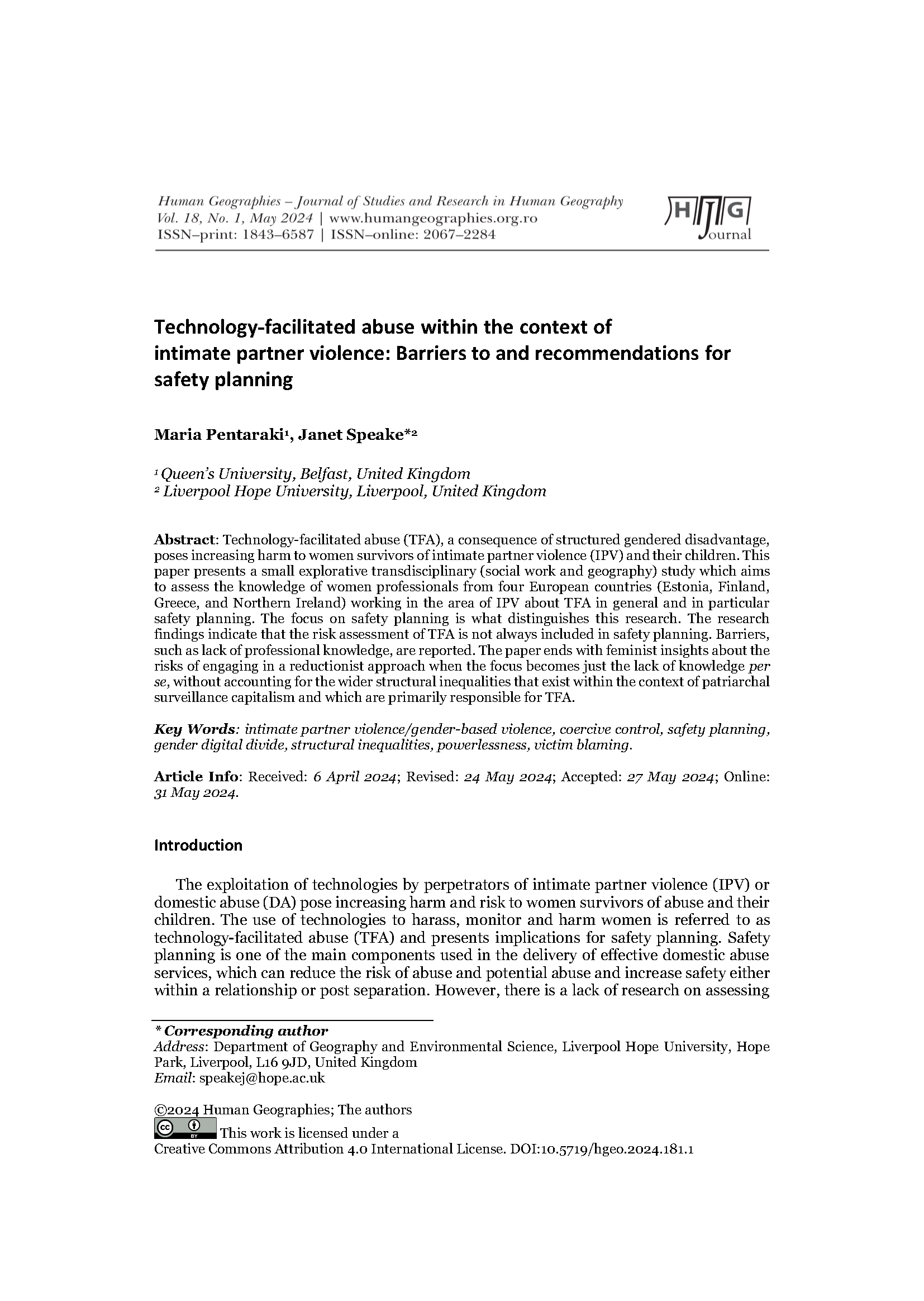Technology-facilitated abuse within the context of intimate partner violence: Barriers to and recommendations for safety planning
DOI:
https://doi.org/10.5719/hgeo.2024.181.1Keywords:
intimate partner violence/gender-based violence, coercive control, safety planning, gender digital divide, structural inequalities, powerlessness, victim blamingAbstract
Technology-facilitated abuse (TFA), a consequence of structured gendered disadvantage, poses increasing harm to women survivors of intimate partner violence (IPV) and their children. This paper presents a small explorative transdisciplinary (social work and geography) study which aims to assess the knowledge of women professionals from four European countries (Estonia, Finland, Greece, and Northern Ireland) working in the area of IPV about TFA in general and in particular safety planning. The focus on safety planning is what distinguishes this research. The research findings indicate that the risk assessment of TFA is not always included in safety planning. Barriers, such as lack of professional knowledge, are reported. The paper ends with feminist insights about the risks of engaging in a reductionist approach when the focus becomes just the lack of knowledge per se, without accounting for the wider structural inequalities that exist within the context of patriarchal surveillance capitalism and which are primarily responsible for TFA.





